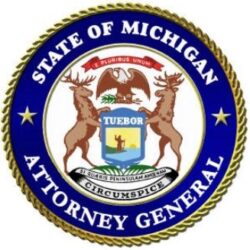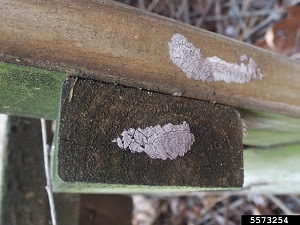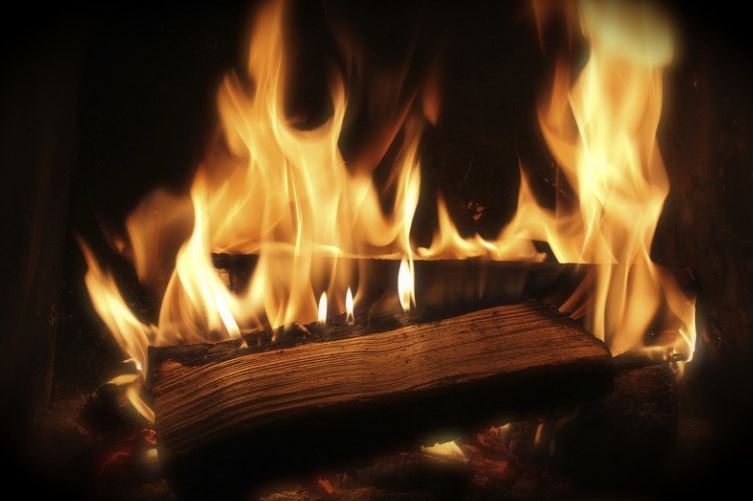
$1 Million Military Service Fund Established For Oakland County Veterans
$1 Million Military Service Fund Established For Oakland County Veterans And Dependents Hurt By COVID-19
Pontiac, Michigan – Oakland County military veterans or eligible dependents who have been harmed financially by the COVID-19 pandemic can apply for up to $2,500 in emergency aid for such necessities as food, housing assistance, utility bills or childcare, County Executive David Coulter said today.
The $1 million Oakland County Veteran Service Fund was created by an allocation from the Oakland County Board of Commissioners using money from the Coronavirus Aid, Relief and Economic Security (CARES) Act and a grant the county’s Veterans’ Services division received from the Michigan Veterans Affairs Agency. Eligible veterans and family members can begin applying for grants today at www.oakgov.com/covid/grants. The county has about 60,000 military veterans and about 100,000 dependents.
“No one is immune from the effects of the pandemic and our veterans and their families are no different,” Coulter said. “These veterans have served this country honorably and have given of themselves. At a time when some of them have been adversely affected by the coronavirus and could use some assistance, it is our responsibility to support them where we can.”
The need must be pandemic-related and meet a necessity of daily life. It is not for the relief of an inconvenience or the purchase of a want or desire. Eligible expenses under the grant include vehicle or home repairs, utility bills, childcare if the veteran is deemed an essential worker, lodging/housing assistance, medical expenses, and food/personal care assistance.
The maximum request is $2,500. Each request for food assistance cannot exceed $150, with a maximum allocation of $500.
Applicants must be an Oakland County resident and received honorable or general under honorable conditions discharge from the U.S. Army, Navy, Marine Corps, Coast Guard, Air Force, National Guard, Reserves or women’s auxiliaries or be a dependent of the veteran.
The applicant must also provide the following documentation:
- Michigan driver’s license or Secretary of State-issued Michigan identification.
- Legible copy of DD-214, separation report, or military service letter belonging to the applicant or the veteran to whom the application is related.
- Proof of Oakland County residence. If the applicant resides in a shelter or transitional housing, the applicant must provide a ‘Shelter Verification’ to establish residency.
- If the applicant is a dependent, the applicant must provide one of the following:
- Birth certificate of minor children
- Marriage license
- Adoption documentation
- Death certificate of veteran
Proof of household income/expenses, including income from all household members 18 years of age and older. Receipts or estimates must be provided if seeking funds for vehicle or home repairs, medical expenses or utility bills. Questions about the program should contact Oakland County Veterans’ Services at 248-858-0785 or veterans-services@oakgov.com.
Coulter and the board have been aggressive in funding programs and services to help mitigate the economic effects of the pandemic to businesses, communities and now veterans, devoting nearly $61 million to the cause and another $32 million awaits board approval.
Allocations and services include:
- Nearly $14 million was allocated to 3,500 small businesses seriously impacted by the pandemic. Grants averaged nearly $4,000 from the small business stabilization fund.
- The “Saving Businesses, Saving Lives” grant, which incentivized Oakland County manufacturers to produce personal protective equipment for health care workers, hospitals and first responders, is included in the nearly $14 million fund.
- $10 million fund to support non-profit organizations.
- $35 million to assist Oakland County communities with costs related to COVID-19.
- 15,000 Oakland Together COVID-19 safety kits to give small businesses essential materials for reopening and customers confidence they will have a safe experience. The kits are available to small businesses, faith-based and nonprofit organizations.






 “Spotted lanternfly could negatively impact our grape industry,” said Robert Miller, invasive species prevention and response specialist for MDARD. “But it also has the potential to damage stone fruits, apples and other crops in Michigan’s fruit belt as well as important timber species statewide.”
“Spotted lanternfly could negatively impact our grape industry,” said Robert Miller, invasive species prevention and response specialist for MDARD. “But it also has the potential to damage stone fruits, apples and other crops in Michigan’s fruit belt as well as important timber species statewide.”
 “Prevention and early detection are vital to limiting the spread of spotted lanternfly,” said Miller. “Spotted lanternfly cannot fly long distances, but they lay eggs on nearly any surface, including cars, trailers, firewood and outdoor furniture. Before leaving an area where a quarantine is present, check vehicles, firewood and outdoor equipment for unwanted hitchhikers.”
“Prevention and early detection are vital to limiting the spread of spotted lanternfly,” said Miller. “Spotted lanternfly cannot fly long distances, but they lay eggs on nearly any surface, including cars, trailers, firewood and outdoor furniture. Before leaving an area where a quarantine is present, check vehicles, firewood and outdoor equipment for unwanted hitchhikers.”

